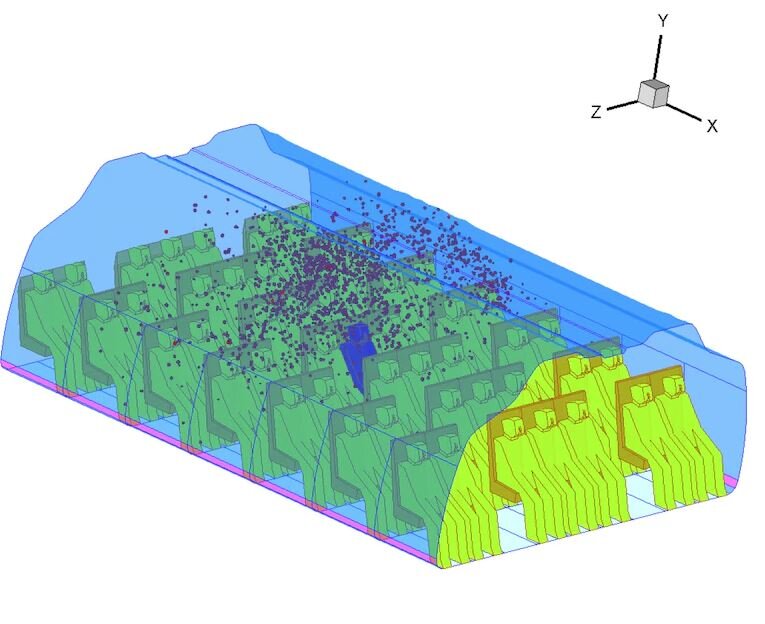We are very excited to announce our 2023 - 2024 Columbia Biomedical Engineering Technology Accelerator awardees. This was a great year for our program as it marked the return to an in-person Pitch Day for the first time since 2019! Our funded teams participated in a rigorous semester-long bootcamp and pitched to the BiomedX Oversight Committee. They are among the Columbia faculty members awarded a Columbia Life Science Accelerator grant to advance biomedical research from the lab to the clinic.
Funds are awarded to perform a "killer experiment", that is, an experiment that will substantially remove risk and leave no doubt that the product will be an improvement over the status quo. The goal is to help translate these scientific innovations into clinically effective products.
CONGRATULATIONS TO THE FOLLOWING TEAMS:
CardiAIc: Artificial intelligence for atrial isthmus prediction
Deepak Saluja, MD (Associate Professor of Medicine, Department of Cardiology) and Christine Hendon, PhD (Associate Professor of Electrical Engineering)
Cardiac arrhythmias are common and can be fatal. Cardiac ablation targeting the critical component or isthmus of an arrhythmia is a commonly used treatment; however, effectively targeting the isthmus is challenging due to functional and anatomic barriers such as scar tissue. The team, led by Drs. Deepak Saluja and Christine Hendon, is applying deep learning to recognize electroanatomic features of target regions for ablation in patients with arrythmias. This technology has the potential to improve ablation outcomes for a substantial number of patients, by accurately identifying where to ablate within the critical circuit.
Vibrant Bio: A comprehensive diagnostic method for all human infectious pathogens from one sample*
*Funded in collaboration with Columbia TRx (Therapeutics Accelerator) and ACT (Accelerating Cancer Therapeutics)
Wei Min, PhD (Professor of Chemistry), Zhilun Zhao, PhD (Postdoctoral Scientist, Department of Chemistry)
Current methods for infectious disease diagnostics are slow, costly, and low throughput, limiting timely treatment for many patients. To tackle the need for rapid, comprehensive detection, Professor Wei Min and team developed an innovative approach to screen for numerous pathogens in one patient sample. This Vibrant MicroBead method utilizes optical barcoding of microbeads, proprietary nucleic acid-based bioassays, and a high-efficiency, cost-effective hardware platform to rapidly read barcodes. This adaptable system can also extend to other applications like serological tests, pathogen screening, and phenotyping. This technology holds promise for early detection of infectious disease, rapid intervention to improve patient outcomes, and prevention of future pandemics.
Rapid point-of-care assays for detection of poliovirus and enterovirus D68
Nischay Mishra, PhD (Assistant Professor of Epidemiology) and Kiran T. Thakur, MD (Assistant Professor of Neurology)
In recent years, risk of paralytic poliomyelitis and enterovirus D68 (EV-D68) associated acute flaccid myelitis has increased. Early symptoms of both conditions are similar and include fever, headache, congestion, and cough. However, within one week, symptoms can worsen to include neurological sequelae. Clinicians and public health practitioners need rapid, inexpensive point-of-care diagnostic assays with high sensitivity and specificity to identify infected patients who may benefit from therapeutic antibodies and antivirals. Dr Mishra and team have developed high-density peptide microarrays and immunoreactive peptides for EV-D68 and poliovirus. Using these technologies, the team will build lateral-flow assays for rapid differential diagnosis of early infections with EV-D68 or poliovirus. The lateral-flow assays will be used as point-of-care diagnostics for testing both patients and environmental samples to improve response time for future cases and outbreaks.
FoliSeq: Stool-based host RNA profiling for gut disease diagnosis and monitoring
Harris Wang, PhD (Associate Professor of Systems Biology) and Alejandro Chavez, MD (Associate Professor of Pediatrics, UCSD)
Development of real-time, low-burden, and cheap monitoring methods for gut health, signaling, and inflammatory status can improve the treatment and management of inflammatory bowel disease (IBD). Current methods for clinical management of IBD involve colonoscopies, which are resource intensive and invasive, and stool or blood tests, which only measure a limited number of biomarkers such as calprotectin and lactoferrin. However, these strategies do not provide the necessary sensitivity nor insight into disease pathology required to inform clinical decision making. Professor Harris Wang and team have developed a non-invasive and inexpensive method, FoliSeq, to measure the gastrointestinal transcriptome directly from stool to track disease state and response to therapy over time in large patient cohorts for less than $30 per sample. FoliSeq can be used to profile gut health, level of inflammation, disease pathway activity, and therapeutic response, and holds great potential as a non-invasive method to guide IBD management.






